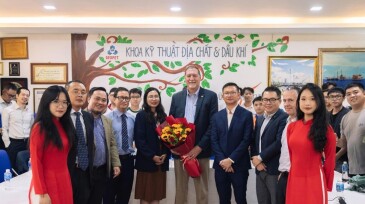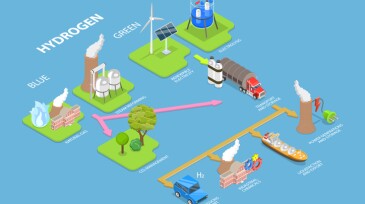energy transition
-
With more than 75,000 professionals in attendance, the fourth edition of India Energy Week brought together industry leaders, policymakers, and energy stakeholders to discuss not just oil and gas, but the future of energy.
-
Mark your calendars for the second SPE Live featuring the 2025 TWA Energy Influencers.
-
Hydrogen is emerging as a key low-carbon energy carrier for the energy transition, with multiple production pathways that differ in cost, emissions, and scalability trade-offs.
-
As global electricity demand surges, driven by AI, digitalization, and electrification, offshore innovation, spanning oil and gas, renewables, nuclear, and data infrastructure, will be critical to delivering a cleaner, more resilient energy future.
-
Jim Clark, a reservoir engineer with more than 4 decades of experience, reflects on the evolution of subsurface engineering and CCS, emphasizing the growing importance of analytics, cross-disciplinary skills, and technical curiosity for the next generation of engineers.
-
By integrating AI into every layer of the energy ecosystem, from renewable forecasting to dynamic pricing, the path toward secure, sustainable, and affordable energy becomes not just possible but achievable.
-
The two projects under the university’s Targeted Proposal Teams program will focus on underground hydrogen and geologic storage solutions.
-
The 2-day engagement was designed to reinforce SPE’s commitment to its global sections, engage with key industrial and academic partners, and inspire the next generation of energy professionals in one of Southeast Asia's recently active and vibrant energy hubs.
-
Russia’s invasion of Ukraine reignited global interest in nuclear power, driving up uranium demand and prices as nations prioritized energy security and low-carbon reliability amid growing supply and geopolitical challenges.
-
This article highlights how oil and gas companies are leveraging existing infrastructure, expertise, and emerging technologies to lead in the development of the hydrogen economy.
Page 1 of 14










